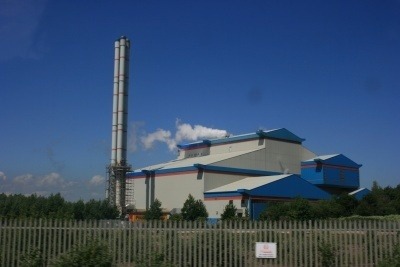Government releases ‘belated’ Biomass Strategy
The UK government has released (10 August) its Biomass Strategy to define the role of biomass in achieving net zero and other sustainability goals – including the use of Energy from Waste (EfW).
 The Strategy does not offer much in terms of new policy, but reaffirms the government’s commitment to ‘monitor the levels of biomass supply to ensure the UK can secure the necessary supply for increasing biomass use across the economy’. Biomass accounted for 8.6 per cent of the UK’s overall energy supply in 2022.
The Strategy does not offer much in terms of new policy, but reaffirms the government’s commitment to ‘monitor the levels of biomass supply to ensure the UK can secure the necessary supply for increasing biomass use across the economy’. Biomass accounted for 8.6 per cent of the UK’s overall energy supply in 2022.
DESNZ also says it will consider interventions to remove barriers to increasing biomass supply if necessary. Biomass from domestic sources currently makes up 66 per cent of the total biomass used in renewable energy generation, with the rest deriving from international sources.
The Strategy lays out short, medium, and long-term goals:
- Short-term (within the 2020s): The government will ‘continue to facilitate sustainable biomass deployment through a range of incentives and requirements covering power, heat and transport’.
- Medium-term (to 2035): The government says it intends to further develop biomass uses in power, heat and transport with a view to transition away from unabated emission uses of biomass through the use of innovation such as Bioenergy with Carbon Capture Storage (BECCS).
- Long-term (to 2050): DESNZ says that biomass use in the long term is ‘difficult to predict’ but that emerging bioeconomy products and markets beyond energy will continue to be reviewed. The Strategy says that current predictions indicate that BECCS will play a large part in the future of bioenergy.
Energy from Waste in the Biomass Strategy
The Strategy delves into the place of EfW in the UK's energy portfolio. DESNZ says that EfW remains a more favourable option for processing residual waste compared to landfill, especially in terms of greenhouse gas (GHG) emissions and the associated environmental impacts.
As of 2022, the UK has a capacity of 1505 MW across 57 EfW plants. In the same year, the electricity generation associated with biodegradable energy from waste stood at 2,378 GWh. The Strategy indicates that solid biomass, which includes wood, waste wood, and animal and plant biomass (excluding biodegradable waste such as food waste), accounted for 33 per cent of the total renewable energy demand in 2022. Nearly two-thirds of this was used in electricity generation, whilst the remaining third was used to produce heat.
Richard Coulson, Chair of the Wood Recycler’s Association (WRA), said: “We welcome this strategy which re-affirms the government’s commitment to sustainable biomass among the wider energy mix and recognises the important role that waste wood biomass can play.
“Biomass powered by waste wood not only delivers reliable, renewable baseload power but, by using domestic waste as a fuel, prevents greenhouse gas emissions from landfill.”
Coulson also highlighted the need to support the industry in deploying BECCS, adding: “There is now an urgent need for the government to go further and confirm support for our sector to deploy power BECCS, to enable us to invest for the future.
“The waste wood biomass sector is already making an important contribution to cutting greenhouse gas emissions and is perfectly placed with BECCS to deliver several more millions of tonnes of CO2 removal.
“It is critical that the eligibility criteria for any support is inclusive and does not exclude many waste wood-powered biomass plants and the valuable role they could play.
“We look forward to working with the government to ensure that our sector can make a long and lasting contribution to UK energy security and to combating climate change.”
Food waste and AD in the Biomass Strategy
The Biomass Strategy also outlines the government's policies related to biomass feedstocks and waste. The Environmental Protection Act 1990, as amended by the Environment Act 2021, mandates all local councils in England to arrange for the separate collection of food waste for recycling at least weekly from households.
The government's preference is for food waste to be collected for treatment by anaerobic digestion (AD), which produces biogas and by-products such as digestate. DESNZ says that this approach not only generates renewable energy but also champions a more circular economy.
Chris Huhne, Chairman of the biogas association ADBA and former Energy and Climate Secretary, commented: “The UK Government has been uniquely slow – by comparison with both the United States and the European Union – to encourage biogas, as part of the energy transition.
“This is a welcome – if belated – recognition of the priority uses to meet net zero, but more targeted support is needed to unlock the potential of key biogas feedstocks. Manures, slurries and agricultural residues are the biggest areas of growth for the biogas industry, but the potential will be untapped without ministerial heft and push.
“Methane is twenty times more powerful than CO2 as a greenhouse gas. Biogas provides a quick win when time is pressing. Sustainable biomass is key to achieving net zero and whilst we applaud the publication of the Biomass Strategy, which has been two years in the making, we urge the government to urgently publish the Sustainability Criteria Consultation that was expected to go hand in hand with it.”








